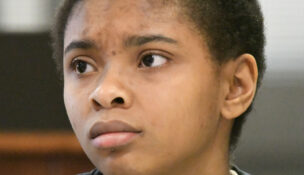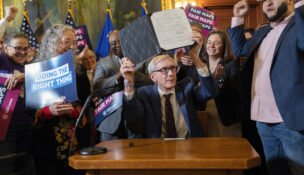Narrow fraud-in-the-inducement exception adopted
By: dmc-admin//June 11, 2003//
 |
|
“The misrepresentations concerned matters related to the performance of the contract itself, and as such, cannot be found to be extraneous to the contractual dispute. Accordingly, Digicorp is limited to contract remedies … The fraud in the inducement exception to the economic loss doctrine is inapplicable under these circumstances.” Justice N. Patrick Crooks |
The economic loss doctrine bars tort claims for fraud in the inducement of a contract, but only when the fraud is interwoven with the contract, in that it involved matters for which risks and responsibilities were addressed, the Wisconsin Supreme Court held on June 3.
The court also held that the economic loss doctrine precludes recovery in tort for solely economic losses, regardless of whether privity of contract exists between the parties. It also held that recovery of the benefit of the bargain is not permissible where the fraud in the inducement exception applies and tort remedies are sought.
Digicorp, Inc. was an authorized distributor for Ameritech Corporation. Bacher Communications, Inc., was not. Digicorp and Ameritech entered into negotiations for Digicorp to sell Ameritech’s calling services and calling plans through Bacher.
Ron Taylor, an Ameritech employee, knew, but failed to inform Digicorp, that one of Bacher’s salesmen, Dann Krinsky, had engaged in fraudulent acts of forging customers’ signatures when Krinsky had worked for a different Ameritech distributor.
Ameritech and Digicorp signed a contract that superseded an earlier one, and incorporated Bacher into the distribution plan. The contract provided that Digicorp was responsible for the actions of the salespersons.
The contract also provided that either party could terminate the agreement, and that Ameritech could terminate the contract without any notice, in the event that Digicorp submitted any sales agreements subsequently found to contain forged customer signatures. This provision was new and had not been included in previous contracts between Ameri-tech and Digicorp.
Krinsky forged hundreds of signatures, and Ameritech exercised its right to terminate the contract. Digicorp, Bacher, and Ameritech all subsequently filed assorted claims and crossclaims against each other, in both contract and tort.
The circuit court held that the tort claims were not barred by the economic loss doctrine, because they fall into the fraudulent inducement exception, and permitted the case to go to the jury.
The jury awarded Digicorp damages for Ameritech’s breach of contract and intentional misrepresentation; awarded Bacher damages for Ameritech’s misrepresentation; and awarded Ameritech damages for Digicorp’s breach of contract and Bacher’s negligence.
All parties appealed, and the court of appeals agreed with the circuit court that the economic loss doctrine did not bar the tort claims.
The Supreme Court granted Ameri-tech’s petition for review and reversed in a decision written by Justice N. Patrick Crooks, and joined by Justice David T. Prosser. Justice Diane S. Sykes wrote an opinion concurring in the result, but dissenting from the reasoning.
Justice Ann Walsh Bradley wrote a dissenting opinion joined by Justice William A. Bablitch. Chief Justice Shirley S. Abrahamson and Justice Jon P. Wilcox did not participate.
Economic Loss Doctrine
The majority opinion first held that the economic loss doctrine does bar tort claims for fraud in the inducement of a contract, but only where the fraud is "interwoven with the contract, and not extraneous to it," adopting the reasoning of a Michigan Court of Appeals case, Huron Tool and Engineering Co. v. Precision Consulting Services, Inc., 209 Mich. App. 365, 532 N.W.2d 541 (1995).
The economic loss doctrine serves three purposes: to maintain the fundamental distinction between tort law and contract law; to protect commercial parties’ freedom to allocate economic risk by contract; and to encourage the party best situated to assess the risk of economic loss, the commercial purchaser, to assume, allocate, or insure against that risk.
The court concluded that the Huron standard best serves those purposes. Distinguishing between interwoven and extraneous fraud, the court quoted the Huron case as follows: "[f]raud in the inducement presents a special situation where parties to a contract appear to negot
iate freely — which normally would constitute grounds for invoking the economic loss doctrine — but where in fact the ability of one party to negotiate fair terms and make an informed decision is undermined by the other party’s fraudulent behavior. In contrast, where the only misrepresentation by the dishonest party concerns the quality or character of the goods sold, the other party is still free to negotiate warranty and other terms to account for possible defects in the goods." Huron, 209 Mich. App., at 372-73.
Defining the difference, the majority opinion said that extraneous fraud concerns those matters whose risk and responsibility were not expressly or impliedly dealt with in the contract.
Finding the Huron standard consistent with the policies underlying the economic loss doctrine, the Supreme Court set forth the following standard: "The fraud in the inducement exception we adopt is very narrow, and does not nullify the economic loss doctrine. It seems clear that, generally, in order for the fraud in the inducement exception to apply, the misrepresentation would have occurred before the formation of the contract. In addition, to constitute deceit or intentional misrepresentation, a plaintiff would have to prove the five elements set forth in the case law and in Wisconsin Civil Jury Instruction 2401. Those five elements would have to be proved by ‘clear, satisfactory, and convincing evidence.’ The underlying purposes of the economic loss doctrine are preserved, since the exception is a narrow one that maintains the distinction between contract and tort remedies in most situations. (cites omitted)."
|
What the court held Case: Digicorp, Inc., v. Ameritech Corp., Nos. 01-1833 & 01-2258. Issue: Does Wisconsin recognize an exception to the economic loss doctrine for fraud in the inducement? Does the economic loss doctrine apply, even without privity between the parties, to all cases, or just those involving goods sold in a chain of distribution? Holding: Yes. Wisconsin recognizes a narrow exception to the economic loss doctrine, where the fraud is extraneous to, rather than interwoven with, the contract. Yes. The lack of privity between the parties does not bar application of the doctrine. Counsel: Michael B. Apfeld, Daniel T. Flaherty, Craig A. Kubiak, Appleton, For Ameritech Corp.; Gregory J. Cook, Anthony P. Hahn, Wausau, For Bacher Communications Inc.; Victor E. Plantinga, Douglas W. Rose, Brookfield, For Digicorp, Inc. |
Application
Applying that standard, the majority opinion concluded that the tort claims were barred, because the alleged fraud was interwoven with the contract.
The court found, "the fraud involved matters for which risks and responsibilities were interwoven into the contract. It is clear from the record that the parties expressly and impliedly assigned and allocated the responsibilities and risks for the … employees."
First, the court noted that the agreement provided that Digicorp reserved the right to approve all individuals engaged in the sale of Ameritech services.
Second, a letter from Taylor to Digicorp sets forth criteria for employees, states that Digicorp is responsible for the actions of sales representatives, and provides that Digicorp’s status as an authorized dealer will be jeopardized by conduct contrary to the standards.
Finally, the agreement provided that the agreement can be terminated by Ameritech if any representative forges customer signatures.
The court found it clear from these facts that the parties expressly assigned responsibility and risk for the sales representatives, which were the subject of the alleged misrepresentation.
The court reasoned, "Even assuming, arguendo, that the misrepresentation made by Taylor with regard to knowledge of Krinsky’s past fraudulent behavior, was a material inducement to Digicorp to enter into its replacement agreement with Ameritech, it was part and parcel of an overall allocation of risks and responsibilities for … employees."
The court added, "This information shows that the alleged misrepresentations by Taylor were interwoven with the subject matter of the contract. … The misrepresentations concerned matters related to the performance of the contract itself, and as such, cannot be found to be extraneous to the contractual dispute.
Accordingly, Digicorp is limited to contract remedies … The fraud
in the inducement exception to the economic loss doctrine is inapplicable under these circumstances."
Privity
The court next held that a subcontractor of the party to whom the alleged misrepresentations were made does not avoid the operation of the economic loss doctrine, even though it is not in contractual privity with the party allegedly engaging in fraud.
In Daanen & Janssen, Inc. v. Cedarapids, Inc., 216 Wis.2d 395, 573 N.W.2d 842 (1998), the court held that the doctrine bars a party in the distributive chain from recovering losses in tort from another party in that chain. The court concluded that the same reasoning applies to bar Bacher’s tort claims against Ameritech as well.
Damages
Finally, the court held that the doctrine prevents parties from both avoiding the contract and recovering the benefit of the bargain.
The court stated, "the application of the fraud in the inducement exception to the economic loss doctrine renders the underlying contract voidable, and gives the defrauded party the option of electing either tort or contract damages. Thus, allowing Digicorp and Bacher to avoid the contract, but recover the benefit of the bargain contravenes not only the logic of the fraud exception, but the core principles of the doctrine of election of remedies. (cites omitted)."
Accordingly, the court reversed the court of appeals, overruled the court of appeals’ published decision in Douglas-Hanson Co. v. BF Goodrich Co., 229 Wis.2d 132, 598 NW.2d 262 (Ct.App.1999), which held that tort claims for fraud in the inducement were not precluded by the economic loss doctrine, and remanded for a new trial limited to contract remedies.
Sykes’ Dissent
Justice Sykes wrote separately, agreeing that the economic loss doctrine applied, and barred the tort claims in this case, but concluding that it applies in all contract cases, regardless of whether the alleged fraud is interwoven with or extraneous to the contract.
Sykes also criticized the majority opinion for confusing tort and contract remedies in the final section of the opinion. Sykes wrote, "A contract fraudulently induced is void or voidable; a party fraudulently induced to enter into a contract ‘has the election of either rescission or affirming the contract and seeking damages.’ This election of remedies requirement does not confer upon the aggrieved party the option of pursuing either contract or tort remedies, but, rather, involves a choice between two different contract remedies: damages for breach or rescission/restitution. (cites omitted)."
Bradley’s Dissent
Justices Bradley and Bablitch dissented from the majority opinion also, writing in favor of a broad fraud-in-the-inducement exception to the economic loss doctrine.
The dissent also concluded that, in practice, the rule adopted in the majority opinion will render the fraud in the inducement exception a nullity.
Citing a federal case, Budgetel Inns, Inc. v. Micro Systems, Inc., 8 F.Supp.2d 1137, 1146 (E.D.Wis. 1998), the court quoted, "In all cases cited by the parties and researched by the court, use of the Huron limitation eliminated the claims of fraud in the inducement. For instance, after discussing the fraud in the inducement exception with the Huron limitation, the Huron court itself found that the plaintiff’s fraud claim was not viable apart from its contract claims…"
Supporting a broad exception for fraud in the inducement, the dissent wrote, "it is difficult for a party engaged in contract negotiations to freely assess, allocate and insure against risk when the other party is blatantly lying regarding material terms of the contract. The existence of tort re-medies provides a deterrent effect against such conduct. Accordingly, it is hard to see how a party’s ability to freely assess, allocate and insure against risk is advanced by removing the deterrent effect created by the tort remedies. (cites omitted)."
| |
||
| |
||
The dissent added, "parties should be able to operate under a legal backdrop that promotes honest negotiation. While rescission and restitution may be adequate remedies in many fraudulent inducement cases, there are certainly cases in which the fraud is so blatant and extensive as to warrant tort damages. Today, the lead opinion takes away the possibility of tort damages in those cases."
The dissent also disagreed with the extension of the decision in Daanen & Janssen to this case, holding that the absence of privity between Ameritech and Bacher is not a reason for not applying the economic loss doctrine.
The dissenters noted, "Since Bacher had no contract with Ameritech, presumably the lead opinion’s application of Daanen & Janssen leaves Bacher without a tort remedy or a contract remedy. It acknowledges that Bacher raised the concern that if the economic loss doctrine prevents its intentional tort claim, it will be left without a remedy for Ameritech’s fraud. However, the opinion does not explain why Bacher being left without a remedy is the correct result. Perhaps it did not address this question because it cannot fairly answer it."
Finally, the dissent took issue, as did Sykes’ dissent, with the majority opinion’s confusing the economic loss doctrine with the requirement that plaintiffs elect between contract remedies.
Click here for Case Analysis.
David Ziemer can be reached by email.
Legal News
- Madison protests turn violent, hate crime probes follow
- Hyundai to pay $333,941 over alleged violations of Civil Relief Act, repossessing 26 servicemembers vehicles
- Federal judge tosses Democrats’ lawsuit challenging Wisconsin absentee voting requirements
- Wisconsin woman who argued she legally killed sex trafficker pleads guilty to homicide
- Gov. Evers to become first Midwest governor to join U.S. Climate Alliance’s Executive Committee
- Wisconsin lacks clear system for tracking police caught lying
- Police confirm ‘Heil Hitler’ salute during Madison pro-Palestinian protests, suspect identified
- Federal agencies failed to investigate Havana Syndrome, ignored crucial evidence and withheld information, attorney says during Congressional hearing
- As Patrick Beverley calls his actions ‘inexcusable,’ police announce they’ve opened an investigation
- Democrats spend $7 million from campaign war chest in TV ads, many directed at Milwaukee northern suburbs
- Biden lauds new Microsoft center on the same site where Trump’s Foxconn project failed
- Gov. Evers seeks applicants for Eau Claire County Circuit Court
WLJ People
- Power 30 Personal Injury Attorneys – Russell Nicolet
- Power 30 Personal Injury Attorneys – Benjamin Nicolet
- Power 30 Personal Injury Attorneys – Dustin T. Woehl
- Power 30 Personal Injury Attorneys – Katherine Metzger
- Power 30 Personal Injury Attorneys – Joseph Ryan
- Power 30 Personal Injury Attorneys – James M. Ryan
- Power 30 Personal Injury Attorneys – Dana Wachs
- Power 30 Personal Injury Attorneys – Mark L. Thomsen
- Power 30 Personal Injury Attorneys – Matthew Lein
- Power 30 Personal Injury Attorneys – Jeffrey A. Pitman
- Power 30 Personal Injury Attorneys – William Pemberton
- Power 30 Personal Injury Attorneys – Howard S. Sicula











